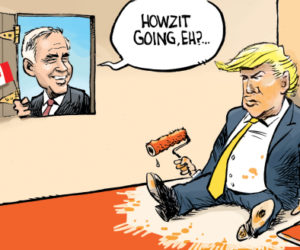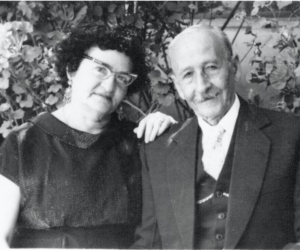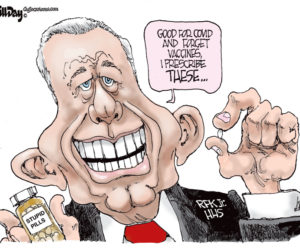
Federal gun control, which many citizens viewed as a necessity on and whose governance of the Brady Bill, Assault Weapons Ban, and handgun control, catapulted it to major prominence in the 1990’s, died on Wednesday after a long battle with the NRA. It was 79. The cause of death was a filibuster. Though death had seemed certain for several days, many gun control supporters held out hope that it could attract the 60 Senators needed to end debate and pass the Manchin-Toomey background bill. In the end, they fell six votes shy.
Prospects for keeping gun control alive seemed upbeat as late as last week, when a number of swing Senators had met with families to listen to pleas to support background checks. Some did. Most did not. Which begs some questions.
Was it all just for show? Was there any thought given to supporting background checks? Were the Senators who met with the families of Sandy Hook posturing for the cameras by claiming to be on the fence? Were they taking advantage of those who had lost kin at their height of emotional fragility? Or, did they cave to the NRA?
A number of Senators ultimately opposed the Manchin-Toomey background check legislation, a carefully worked out compromise by two members of the chamber who are among the last who would have been expected to have supported gun control of any kind. But they saw a tragedy and wanted to stop it (Manchin was particularly impassioned, with tears stringing down his cheek at one point).
They had hoped, and thought enough of their colleagues would follow. But they fell 6 votes short of the 60 that was needed, thus showing with more certainty that at any time in the last two decades that the broader issue of gun control is dead. After all, if background checks which has 90% support from the American public can’t pass, what can?
Johnny Isackson is emblematic of that question. At the time of the Manchin-Toomey introduction, he had said, “We have not seen the final draft of the legislation that was produced…but I think it deserves a vote up or down.” Of the Newtown families that he’d soon be meeting, Isackson said, They deserve a right to be able to sit down and talk with me and I gave them that right and will be happy to meet with them. “Isackson did keep his word last week by voting to proceed to the initial debate, only to be among the first to indicate after the fact that he would oppose the bill — and the second cloture vote.
What happened to “deserving a vote up or down?” The NRA, that’s what.
Now I’m sure the families appreciated the chance to meet with every Senator that was willing. After all, Isackson at least didn’t take the tact of his senior colleague from Oklahoma, Jim Inhofe, and say the gun debate wasn’t about them.” But actions were more important than meetings or words and on that, Isackson failed.
Enter Gabby Giffords. When she said she was “furious,” with the vote, one person who may have stood out was Jeff Flake. She and Flake are friends and I use the term “are” because after she was shot, he made the drive from Phoenix to Tucson in order to visit her. Mark Kelly appeared to re-enforce that when he tweeted, “I’m confused, friend. You had that chance yesterday. Want to rethink and join me and Gabby in making Arizona safer?”
Earlier, Kelly had said “it appears to me that maybe he actually hasn’t read the bill” before saying he’d campaign against Flake if he did ultimately vote no. “You know, friendship is one thing,” Kelly said. “Saving people’s lives, especially first graders, is another thing.”
Indeed, in a New York Times op/ed, Giffords herself wrote “speaking is physically difficult for me. But my feelings are clear: I’m furious,” Giffords vowed to “use every means available to make sure we have a different Congress, one that puts communities’ interests ahead of the gun lobby’s,” adding, “I will not rest until we have righted the wrong these senators have done, and until we have changed our laws so we can look parents in the face and say: We are trying to keep our children safe.”
When Giffords served in Congress, she was acknowledged to have been among the most positive, cheerful people there. So her language yesterday was stunning (“I’m furious,” and “shame on you”), and appropriately so.
Lindsey Graham never appeared to be on the fence, called the legislation “feel good.” His best-buddy and usual philosophical cohort John McCain obviously couldn’t persuade him to support it. Or is it that Graham, who has seen his popularity drop 14% among South Carolina Republicans and is facing a primary next year, didn’t want to give the party one more reason to oppose him in the wake of lending his name to immigration reform and President Obama’s Judicial nominees? But his reference to the legislation as “feel good.” C’mon.
Incidentally, just before the vote, Graham was honored by the The National Shooting Sports Foundation, the trade association for firearms was presenting him with the 2012 Legislator of the Year Award.
Graham said the legislation wouldn’t have prevented Newtown and sadly, he’s right. But to say it wouldn’t prevent any past or future tragedies. I sincerely doubt he believes that.
But it’s not just Republicans who deserve scorn. Four Democrats, three of whom had appeared genuinely appeared torn, ultimately sided with the NRA (Mark Pryor never seemed to be seriously considering backing the measure).
Of Max Baucus, a previous opponent once said he has “three positions for every two-sided issue.” Tester even lobbied his home-state colleague hard. Asked why he voted “no,” Baucus had a one word answer: “Montana.” Another way of putting it: Montana politics and re-election.
Mark Begich and Lisa Murkowski, two Alaska Senators (one a Democrat, another a Republican). Alaska is moving slightly left. And this is background checks.
Heidi Heitkamp may have stung the hardest. Or as I would prefer to call her, “Hem and Haw Heidi.” She was among the last Senators to declare a position is not up for re-election for a “I’ve been adamant from the very beginning of this conversation that the focus should be on mental health issues.” Uh, I beg your pardon Senator but would you mind pointing out how the two are mutually exclusive?
Surely, Manchin, Tester, and Donnelly, all like-minded colleagues who like Heitkamp, don’t face the voters again until 2018, must have been disappointed. Mary Landrieu, a Louisiana Democrat is up for re-election next year and she backed it, and Louisiana is a hell of a lot more conservative than North Dakota. Kay Hagan will be running in North Carolina — not as conservative but still chock full of gun rights folks, and she said yes as well.
By backing marriage equality and the Democratic budget, Heitkamp has already taken courageous stands for a North Dakota Democrat this month. Perhaps she thought doing so again wouldn’t be seen as the “North Dakota Way,” as she said last year. But Heitkamp’s statement, “this conversation should be about what is in people’s minds, not about what is in their hands” seems to be a descendant of the “guns don’t kill, people kill.” Isn’t that contradictory?
Perhaps I am missing something but aren’t background checks key to scoping out mental health deficiencies? And that’s just it. And Mark Begich and Lisa Murkowski, two Alaska pols. Alaska is moving slightly left. But this is about background checks people!
What is most astonishing is that the issue at hand is background checks. It is not an assault weapons ban, it doesn’t address the number of clips. 90% of the American people back this, which means they see it as good policy. And if it’s good policy, wouldn’t it be good politics as well.
Even well into the 90’s, gun control legislation was never super-partisan. The NRA even backed much of it. At that time, it was more a hobby group like a bird watching society or astronomy club.
The National Firearms Act was the first to pass in 1934. Another measure cleared four years later.The Federal Handgun Control Act of 1968 drew 71 votes in the Senate. Only four dissenters were Republican (southern and western Democrats provided most of the opposition). Conversely, on yesterday’s background vote, only four supporters were Republican.
When the assault weapons ban the House in 1994 on a cliffhanger 216-214 vote, it had the vote of 46 Republicans, including the House Minority Leader, Robert Michel, future Ohio Governor John Kasich, and staunchly anti-abortion and impeachment manager Henry Hyde.
Isackson had said recently that if you can find 70% or 80% common ground, that’s a victory. ” This had 90%. So what am I missing?
One moment that to this day brings tears to my eyes was Carolyn McCarthy’s victory speech upon winning a House seat in 1996. She eluded to “beating the man I wanted to beat. But,” she added, “I have also beaten the NRA.” Maybe it’s time to start thinking that way again.
I tell myself that if most of these Senator’s had been the deciding vote, maybe they would’ve voted yes. After all, the 1994 assault weapons ban, which squeaked by the House 216-214, could never have received 219, 220 or even 240 or 250. It only required a majority. And proponents always made sure it happened. It might not have been a Profile in Courage but you take what you can get. It would be nice to see more of that today.
And maybe a couple of lives could be saved in the process.
LEGAL NOTICE ON CARTOON: Thecopyrighted cartoon is licensed to run on TMV. Reproduction elsewhere without licensing is strictly prohibited. See great cartoons by all the top political cartoonists at http://cagle.com. To license this cartoon for your own site, visit http://politicalcartoons.com
















